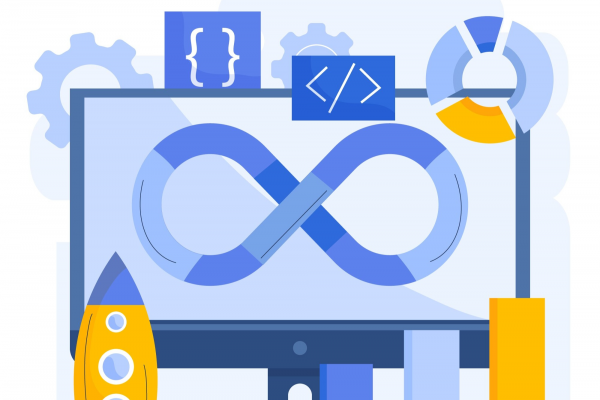The dynamic business landscape demands streamlined workflows and efficient systems to stay competitive. Enterprise applications, bolstered by AI-powered solutions, are revolutionizing the way organizations operate, delivering enhanced productivity and informed decision-making. This blog delves into how AI-powered enterprise solutions optimize application workflows, the impact of transformation services, and the rise of SaaS-based solutions.
The Importance of Workflow Optimization
Efficient workflows are the backbone of organizational success. They minimize redundancies, improve productivity, and enhance customer satisfaction. However, traditional enterprise applications often fall short in handling complex data and evolving business requirements. AI-powered enterprise solutions address these challenges by integrating intelligent automation, advanced analytics, and machine learning models into business workflows.
Key Benefits of AI-Powered Enterprise Applications
- Enhanced Decision-Making Through Data Insights
AI integrates advanced data analytics with enterprise applications, enabling organizations to extract actionable insights. For instance, predictive analytics helps forecast trends, identify risks, and seize opportunities in real-time.- Statistical Insight: According to Gartner, by 2026, organizations that operationalize AI transparency will see a 50% improvement in AI model uptake and business goal alignment.
- Improved Operational Efficiency
AI-powered automation reduces manual effort in repetitive tasks, allowing teams to focus on strategic initiatives. These solutions optimize workflows by dynamically assigning resources, automating approvals, and identifying bottlenecks in processes.- Statistical Insight: McKinsey reports that combining generative AI with all other technologies, work automation could add 0.5 to 3.4 percentage points annually to productivity growth.
- Scalability with SaaS-Based Solutions
SaaS-based solutions provide unparalleled scalability and flexibility, empowering businesses to adapt to changing needs seamlessly. With AI integration, these platforms offer real-time updates, proactive troubleshooting, and predictive maintenance.- Statistical Insight: According to Statista, the global SaaS market is expected to reach USD 793.1 billion by 2029, driven by innovations in AI and cloud computing.
Transforming Workflows with AI-Powered Transformation Services
AI-powered transformation services have emerged as a game-changer for enterprises seeking agility and efficiency. These services enable organizations to reimagine their workflows, making them more adaptive and future-proof. Here’s how transformation services are driving change:
- End-to-End Automation: From procurement to customer support, AI automates end-to-end workflows, ensuring seamless processes.
- Customizable Solutions: Tailored enterprise applications cater to specific industry needs, offering personalized features powered by AI algorithms.
- Continuous Learning: AI models evolve with business needs, ensuring applications remain relevant and competitive.
AI Use Cases in Enterprise Applications
- Intelligent CRM
AI-enhanced customer relationship management (CRM) systems analyze customer behavior and provide personalized recommendations, improving customer retention and satisfaction. - Predictive Supply Chain Management
AI applications in supply chains predict demand patterns, optimize inventory, and reduce logistics costs, ensuring a resilient supply chain. - AI-Driven HR Management
From automating candidate screening to improving employee engagement through sentiment analysis, AI-powered HR solutions streamline talent management processes.
Adopting SaaS-Based Solutions for Enterprise Success
SaaS-based solutions are revolutionizing the deployment of enterprise applications. With features like zero downtime updates, high availability, and enhanced security, these solutions simplify the adoption of advanced technologies. AI further strengthens SaaS platforms by enabling features such as:
- Proactive System Monitoring: AI detects anomalies and resolves issues before they impact operations.
- Enhanced Collaboration: AI-powered tools facilitate seamless collaboration across teams, irrespective of geographical boundaries.
- Cost Efficiency: The subscription-based model of SaaS eliminates hefty infrastructure costs, making it a cost-effective choice for businesses.
Challenges and How to Overcome Them
While AI-powered enterprise applications offer significant advantages, they also come with challenges such as integration complexities, data security concerns, and resistance to change. Businesses can address these challenges by:
- Investing in Training: Ensuring employees are well-versed in using AI-driven tools.
- Partnering with Experts: Collaborating with experienced transformation services providers for seamless integration.
- Focusing on Security: Implementing robust data protection measures to safeguard sensitive information.
Conclusion
AI-powered enterprise solutions are transforming the way businesses operate by optimizing workflows, improving decision-making, and fostering innovation. Whether through transformation services or SaaS-based solutions, leveraging AI in enterprise applications paves the way for increased efficiency and sustainable growth. As organizations navigate the digital era, adopting these intelligent solutions will be critical to staying ahead in a competitive market. Partner with STL Digital for the right guidance in AI & SaaS services.
By focusing on data-driven insights, scalable platforms, and automation, businesses can unlock the full potential of AI-powered enterprise solutions, driving operational excellence and long-term success.



